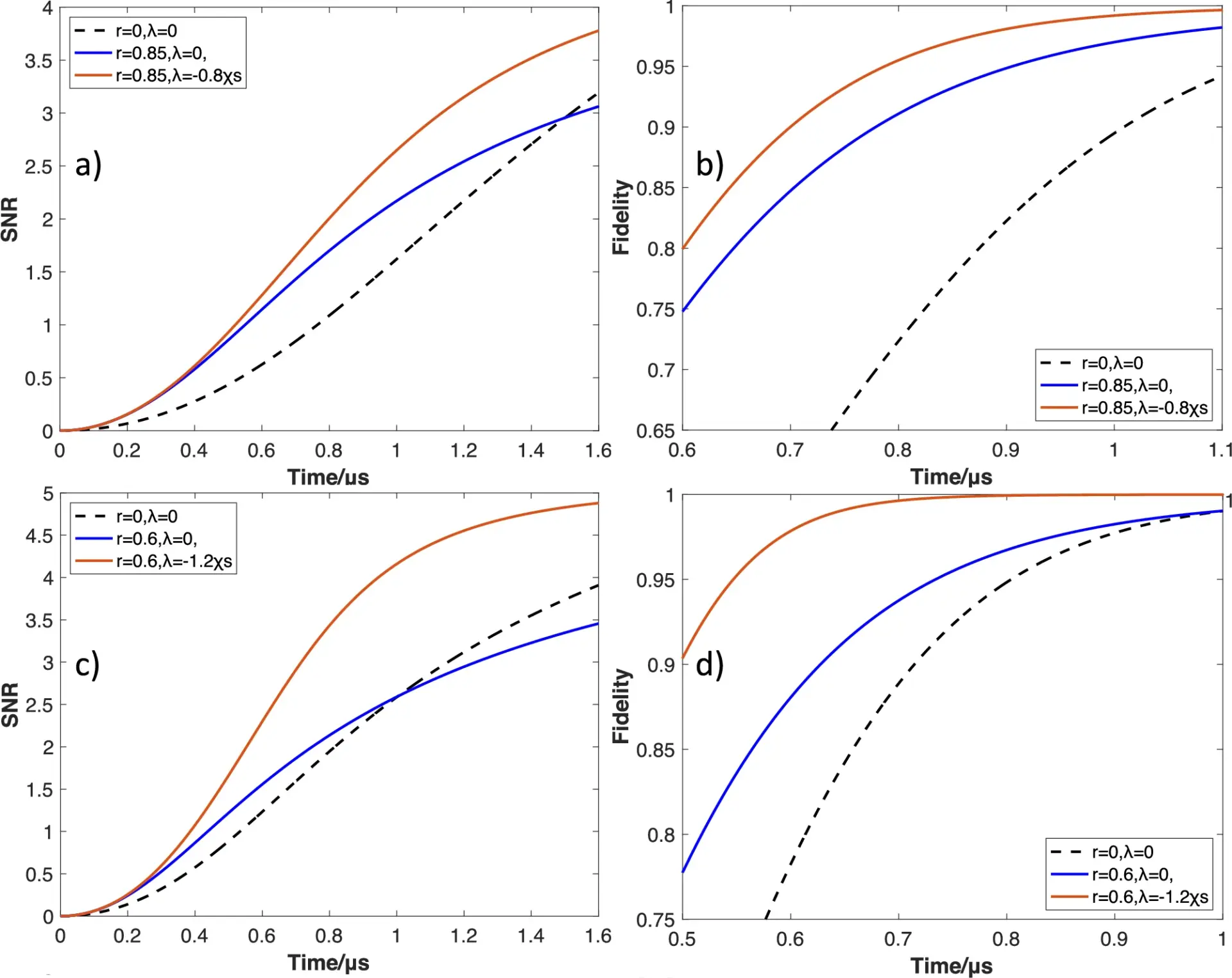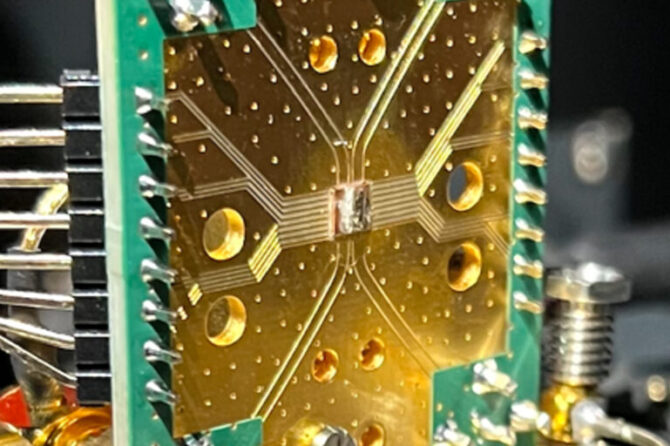Fast and high-fidelity qubit measurement is essential for Quantum Error Correction (QEC) in universal quantum computing.
This study examines dispersive measurement of a spin in a semiconductor double quantum dot using a nonlinear microwave resonator.
By employing displaced squeezed vacuum states, researchers have achieved rapid, high-fidelity readout for silicon spin qubits. Their results show that modest squeezing and mild nonlinearity significantly enhance the signal-to-noise ratio (SNR) and the fidelity of qubit-state readout.
By optimally adjusting the phases of squeezing and nonlinearity, they have reduced readout time to sub-microsecond ranges.
With current technology parameters (κ ≈ 2χs, χs/(2π) ≈ 0.15 MHz), utilizing a displaced squeezed vacuum state with 30 photons and a modest squeezing parameter r ≈ 0.6, along with a nonlinear microwave resonator charactered by a strength of λ ≈ − 1.2χs, a readout fidelity of 98% can be attained within a readout time of around 0.6 μs.
npj Quantum Information, Published online: 28 December 2024; doi:10.1038/s41534-024-00924-8


